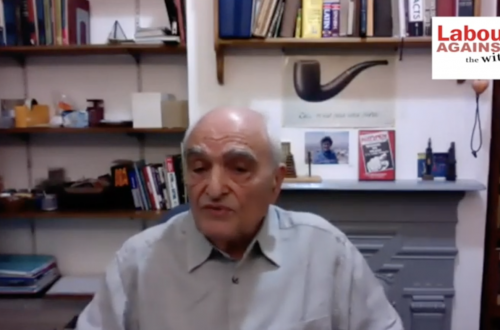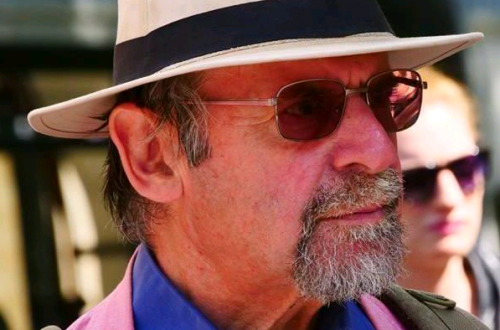This post is by Former Corr and Sarah AB
The Israeli academic Shlomo Sand has just published the third of a trilogy* dedicated to declaring the “myth” not only of the Jewish state, but of Jewishness itself.
Sand present his argument as a historical one, picking up the old “Khazar” theory that modern Jews sprung from central Asia in recent memory, but his work is questioned (to put it politely) on almost every point by those with expertise in the field. In particular, the Israeli historian Anita Shapira has explored the arguments in great detail in ‘The Jewish-people Deniers’, a review of Sand’s earlier work.
The latest book, How I Stopped Being a Jew, has received extensive media coverage, including this op-ed by Sand in The Guardian and a number of lengthy reviews which do not share the scepticism of historians.
One of the most enthusiastic reviews appeared recently in Times Higher Education, the trade magazine for UK academics. Lynne Segal, professor of psychology and gender studies at Birkbeck, declares Sand’s book to be “persuasive”. So it may be a useful exercise to see whether Segal can demonstrate this, or whether this remains mere assertion. She begins:
Watching the recent toll of civilian deaths in Gaza rise ever higher, it is a hideously apt time to review the latest text from the controversial Israeli scholar Shlomo Sand. In How I Stopped Being a Jew, Sand turns his historical gaze to exploring issues of Jewish identity: who or what is a Jew? Is there any coherence to contemporary Jewish identity, and can one stop being a Jew?
Whatever one thinks of Gaza, should it really make one think about Jewish identity and whether one can stop being Jewish?
In his arguments against the idea of a Jewish people, Sand uses the fact that Jews are ethnically, culturally and religiously diverse as evidence that the grounds for a coherent Jewish identity are therefore suspect. However in other circumstances, we routinely give credence to the notion of ‘a people’ on grounds other than race or religion – most people wouldn’t talk about race or religion when asked about Britishness.
Sand also casts doubt on the religious basis for Zionism, and Segal on an alleged inflation of Zionist claims on the land.
Furthermore, God’s promises to these secular Zionists kept growing, suggesting that he offered Abraham and his descendants not only what is now northern Israel but also land rights extending from “the river of Egypt unto the Euphrates”, thereby including parts of Turkey, Syria and Iraq. These “promises”, Sand concluded, are the product of Zionist mythology. What else could they be?
However, many Zionists don’t invoke promises in the Bible to justify their stance, nor do they support the idea of a Greater Israel.
Segal reports that Sand has become more sceptical about Jewish anxieties in the face of a long history of terrible persecution:
However, Sand now questions his earlier response, suggesting that, except in marginal pockets, the horrific Judaeophobia of the past no longer exists in Western cultures. No longer do Jews in most parts of the world display what he recalls his father describing as “that fleeting and sad look, the sign of fear and apprehension” that marked the face of the European Jew in the late 1940s. Sand’s critics today would point to the rise of anti-Semitism once again in Europe, although this increase itself certainly reflects the rise and fall of conflict in the Middle East, and is far from orchestrated by Western elites.
Of course antisemitism changes. The fact ‘Western elites’ don’t tend to orchestrate it doesn’t help its victims and some Western elites do lend a hand by ignoring the issue, by glossing over it – even perhaps by suggesting that the war in Gaza is the right time for some tendentious reflections on Jewish identity. And the reference to antisemitism no longer being a serious problem in *Western* cultures sidesteps the high levels of of antisemitism in some non-Western cultures, in part officially sanctioned, and with influence in the West.
When Sands is questioned in public, he is known for sidestepping challenges on accuracy and going on the political attack. Richard Millett gives account of talk at SOAS where Sands was not happy about answering questions. Further critique of Sand’s work can be found in the commentary of historian Petra Marquardt-Bigman. She points out that Sand’s work is popular on Stormfront and Iranian Press TV, and she notes that Amazon UK customers who buy David Duke’s insights on “Jewish Supremacism” also tend to buy Sand’s first book “The Invention of the Jewish People”. He is also positively reviewed on The Electronic Intifada and Mondoweiss.
* THe first two were “The Invention of the Jewish People” and “Invention of the Land of Israel”


